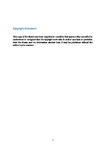The Experiences of Deaf and Hard of Hearing Students and Specialist Teachers in Mainstream Schools in Saudi Arabia
| dc.contributor.supervisor | Georgeson, Jan | |
| dc.contributor.author | Alanazi, Mubarak | |
| dc.contributor.other | Plymouth Institute of Education | en_US |
| dc.date.accessioned | 2020-06-20T14:01:32Z | |
| dc.date.issued | 2020 | |
| dc.identifier | 10534969 | en_US |
| dc.identifier.uri | http://hdl.handle.net/10026.1/15794 | |
| dc.description.abstract |
This study was designed to explore the perceptions of Deaf and Hard of Hearing (DHH) students and specialist teachers regarding inclusive education and associated barriers and support in four mainstream pramry schools for boys in Riyadh, Saudi Arabia. DHH students and specialists involved in inclusive schools have experienced mainstreaming since 2000; their experience, perceptions and understanding as members of these particular communities of practice can offer important insights into the development of practice towards inclusive education. This research aimed to help the Saudi education system to translate inclusive education principles into practice. Ainscow’s model (2005a) of inclusive education and an interactionist view of disability have framed the formation of study’s objectives and secondary research questions. Data were generated from a qualitative case study: semi-structured interviews with eight DHH students, twelve specialist teachers, and four parents, observations in mainstream schools, and documentary analysis gave a broad picture of the issues under investigation. The case study covered four main aspects: the experiences of students and specialists in four mainstream schools, specialists’ understanding of the term ‘inclusive education’, students’ and specialists’ perceptions of the barriers to inclusion affecting DHH students, and their perceptions of the support required to promote inclusion for DHH students. The findings suggest that practices of education in mainstream schools for DHH students mainly represent an ethos of integration rather than inclusion. This suggested a consensus that there has been a delay in implementing inclusive provision. Although specialist teachers demonstrated multiple understandings related to the phrase “inclusive education”, human- and physical-related factors constituted the main barriers to the support required. This study therefore opens a debate around issues of social inclusion within a sociocultural context that places Saudi and Islamic values in educational practice, which implies that change is not a simple issue of addressing participants’ perceptions of the social phenomenon of inclusion; rather, a comprehensive process is called for that should address all sociocultural factors that shape participants’ perceptions. While these issues were discussed with caution and are interrelated with other contextual issues such as the workload, the lack of engagement in professional development for school staff and ineffective arrangements for the provision of physical support, it was argued that the Saudi policies currently lack clarity in decision-making about inclusion and its practices. Recommendations are made to address this in order to work towards inclusive education for DHH students in the Saudi context. | en_US |
| dc.language.iso | en | |
| dc.publisher | University of Plymouth | |
| dc.subject | Deaf and Hard of Hearing Students | en_US |
| dc.subject | Inclusive Education | |
| dc.subject.classification | PhD | en_US |
| dc.title | The Experiences of Deaf and Hard of Hearing Students and Specialist Teachers in Mainstream Schools in Saudi Arabia | en_US |
| dc.type | Thesis | |
| plymouth.version | publishable | en_US |
| dc.identifier.doi | http://dx.doi.org/10.24382/697 | |
| dc.identifier.doi | http://dx.doi.org/10.24382/697 | |
| dc.rights.embargodate | 2021-06-20T14:01:32Z | |
| dc.rights.embargoperiod | 12 months | en_US |
| dc.type.qualification | Doctorate | en_US |
| rioxxterms.version | NA |
Files in this item
This item appears in the following Collection(s)
-
01 Research Theses Main Collection
Research Theses Main


